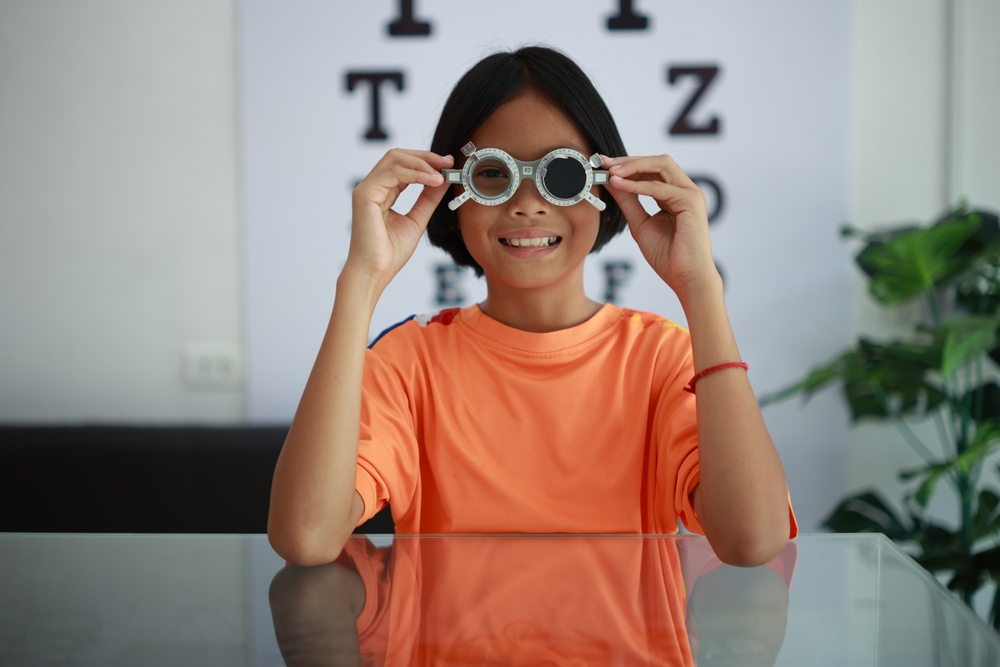
The Importance of Pediatric Eye Exams
As a parent, you want the best for your child's health and well-being. One crucial aspect of your child's overall development is their visual health. Regular pediatric eye exams play a vital role in ensuring your child's eyes are developing properly and that any vision problems are detected and addressed early on.
The Impact of Vision Problems on Learning and Development
Vision problems in children can have a significant impact on their learning and development. When a child's vision is impaired, they may struggle to keep up with their peers in the classroom, experience difficulty with reading and writing, and have trouble participating in physical activities.
Vision problems can also lead to behavioral issues, such as frustration, inattention, and even social withdrawal. Children with undiagnosed vision problems may be labeled as "problem students" or "difficult" when, in reality, their academic and behavioral challenges are rooted in their visual impairment.
Common Eye Conditions in Children
Children can develop a variety of eye conditions, some of which may be present from birth or develop as they grow. Some of the most common eye conditions in children include:
• Refractive errors (nearsightedness, farsightedness, and astigmatism)
• Amblyopia (lazy eye)
• Strabismus (misaligned eyes)
• Color vision deficiencies
• Eye coordination problems
Early detection and treatment of these conditions are crucial for ensuring your child's visual development and overall well-being.
Signs and Symptoms of Vision Problems in Children
Recognizing the signs and symptoms of vision problems in children is the first step in seeking the appropriate care. Some common indicators that your child may be experiencing vision difficulties include:
· Frequent eye rubbing or blinking
· Complaints of headaches or eye strain
· Difficulty reading or concentrating on tasks
· Tilting the head or covering one eye
· Frequent eye turns or crossed eyes
· Sensitivity to light or glare
· Poor hand-eye coordination or clumsiness
If you notice any of these signs in your child, it's essential to schedule a comprehensive eye exam with your optometrist.
The Importance of Regular Pediatric Eye Exams for Early Detection
Regular pediatric eye exams are the best way to ensure your child's vision is developing normally and to identify any potential issues early on. The American Optometric Association recommends that children have their first comprehensive eye exam at 6 months of age, followed by additional exams at 3 years old, 5 years old, and then annually thereafter.
During these examinations, the optometrist will assess your child's visual acuity, eye alignment, eye movement, and overall eye health. They may also conduct tests to detect common eye conditions, such as refractive errors, amblyopia, and color vision deficiencies.
Early detection and treatment of vision problems are crucial for your child's development. By addressing these issues promptly, you can help your child overcome any challenges and ensure they have the best possible chance of success in school and in life.
Optimizing Your Child’s Vision and Eye Health with Drs. Hiura & Hiura Optometrists
Investing in your child's vision health through regular pediatric eye exams is one of the most important steps you can take as a parent. By catching vision problems early and providing the necessary treatment, you can help your child reach their full potential and enjoy a lifetime of healthy, clear vision.
Ensure your child's vision is clear and healthy with a comprehensive pediatric eye exam at Drs. Hiura & Hiura Optometrists. Visit our office in San Francisco, California, or call (415) 792-1900 to book an appointment today.




